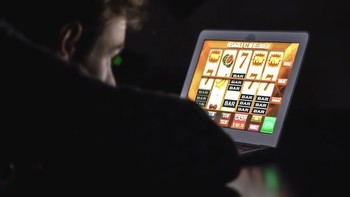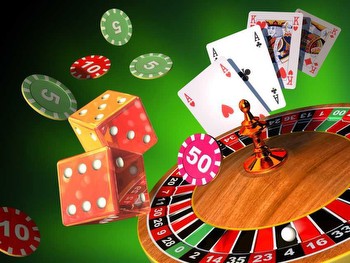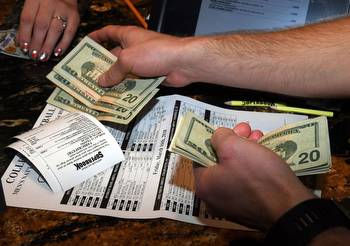Indy Sportsbook: Is Gambling Bad?

In the realm of leisure and pastime, one practice stands out as steeped in contradiction: gambling. Since the Supreme Court case in 2018 which struck down the federal ban on sports betting, the industry has grown to a $15 billion-a-year industry. On one hand, gambling could merely be a benign form of entertainment, a source of exhilaration and social joy. On the other hand, it harbors the potential to spiral into a gripping addiction with far-reaching consequences. For students and young adults alike, gambling can spiral out of control fast.
In its most innocent form, gambling is a universal form of entertainment, a testament to humanity’s fascination with chance and the potential to “win big.” This allure is not merely about the prospect of financial gain but also the thrill of the unknown. Poker nights, sports betting pools, and even the casual lottery ticket embody this spirit of gambling as a leisure activity that offers a respite from the rigors of daily life and an opportunity for communal bonding.
The digital age has ushered in a new era of gambling, one where the thrill of the bet is never more than a click away. Improved technology has made gambling more accessible, discreet, and varied for groups that previously didn’t have much access to it, including students. Online platforms and mobile apps now offer a plethora of gambling options, from virtual poker rooms to sports betting sites, all accessible from the comfort of one’s dorm room. This convenience, however, comes with its own set of challenges. Ease of access can blur the boundaries between casual entertainment and compulsive behavior. Students can gamble anonymously, at any hour, without the social checks and balances that physical gambling spaces might provide.
Students are not the only ones affected by the flashy colors and the large amounts of free play. A recent WSJ story profiled a 41-year-old mental health professional who got hooked on online gambling. After winning around $500,000 online, she continued to gamble and soon lost all the money and more, ending up down $100,000. While this may feel like an extreme case, it is often true that young adults get lucky to win a few hundred, just to find themselves down thousands when the clock strikes zero.
While gambling online is extremely popular, it is also common in dorm rooms. The camaraderie found in friendly wagers on sporting events or the intellectual challenge posed by a game of blackjack can foster a sense of community and relaxation, albeit momentarily. Common rooms are often filled with students playing a light-hearted game of cards. When rival football teams play each other, many friends bet on the winner of the game for both bragging rights and money gains. For many, an important and exciting part of gambling is the camaraderie that is fostered and the community that can be formed around friendly bets.
Gambling can both strengthen bonds and create fond memories for all parties involved. However, especially for young adults responsible for their own decisions for the first time, excess gambling within social circles can place a heavy strain on finances and relationships. This kind of excessive practice can create or enforce socioeconomic power dynamics as some may be willing or able to gamble with more money or more frequently than others. Often, people who are less financially stable can find themselves in tough situations more than people who have thousands at their disposal.
While not directly linked to how much money kids have, gambling’s integration into society, social circles, and video games introduces gambling behaviors in a guise that might not be immediately recognized as such. In the popular video game Counter-Strike: Global Offensive (CS:GO), people spin a wheel for one dollar, potentially getting a very rare gun skin worth hundreds online. However, those gun skins are acquired at an extremely rare rate. For a generation that has grown up in the digital age, the lines between gaming and gambling have become blurred. As these platforms become more ingrained in young adults’ lives, understanding their allure and potential risks becomes crucial for fostering a healthy relationship with gambling among the youth.
The challenge, then, lies in navigating the fine line between gambling as a harmless form of entertainment and gambling as a harmful addiction. This requires a conscious effort to understand the psychological triggers associated with gambling, learn the importance of setting limits, and recognize the signs of problematic behavior.
However, beyond individual efforts, it’s important for us to have conversations as a community about the various aspects of gambling, its impact, and the support available here at Harvard for those struggling with a gambling addiction. We have seen friends and peers alike go through gambling addictions on campus, and by working together, students can navigate the world of gambling, aiming for a future where its enjoyment is not overshadowed by the risks of addiction.
Luke Wagner ’26 (lukewagner@college.harvard.edu) and Santi Kelly ’26 (skelly@college.harvard.edu) write Sports for the Independent.































